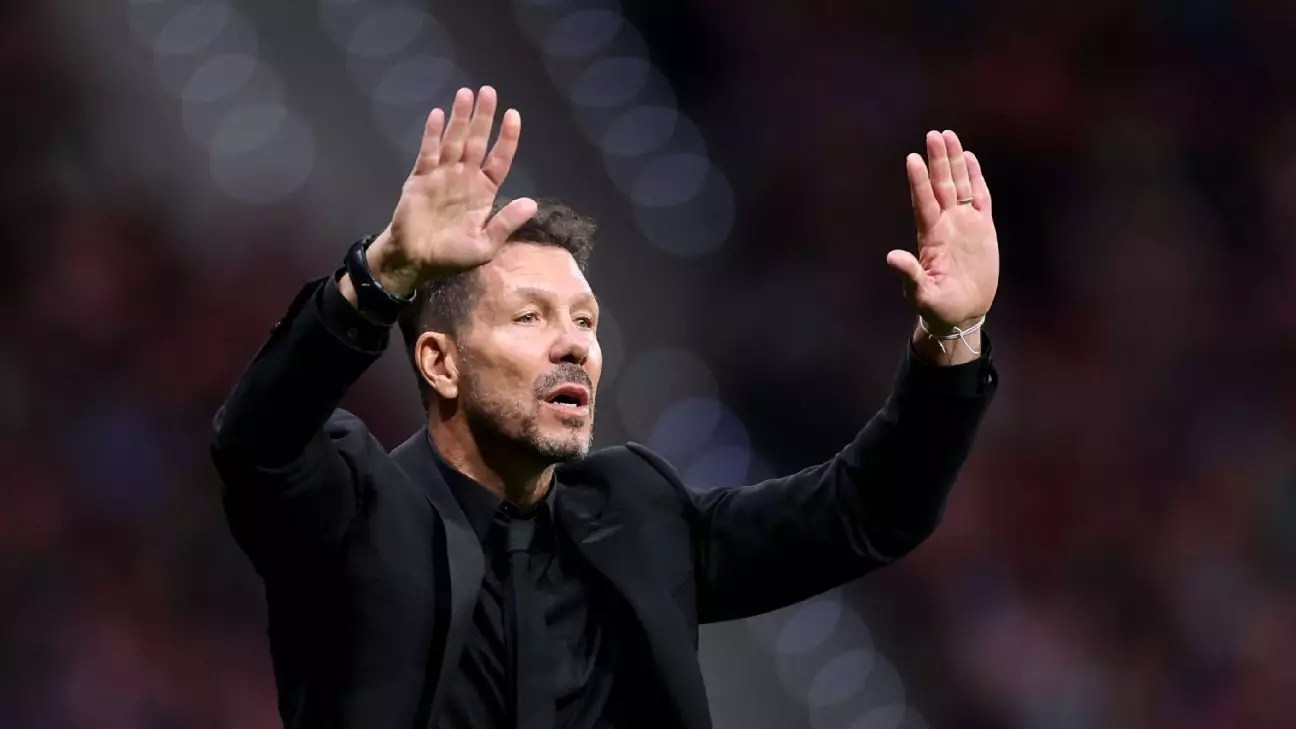The atmosphere surrounding football matches in Spain has faced considerable turbulence due to incidents of violence, notably highlighted by the recent events at Atlético Madrid’s Metropolitano Stadium. On September 29, during a highly charged derby against Real Madrid, the game was briefly suspended due to fans throwing projectiles onto the pitch, a disturbing display that led to immediate repercussions. The LaLiga match, initially tied at 1-1, was pulled to a halt for over 15 minutes after lighters and plastic bottles rained down from the stands. This occurrence not only disrupted the match but also drew the ire of sports authorities and resulted in significant penalties.
The repercussions were swift and severe following the interruptions caused by these outrageous acts. Spain’s Anti-Violence Commission has taken a hard stance, proposing a two-week closure of the Metropolitano Stadium. In addition, a hefty fine of €65,000 ($70,900) is set as a financial penalty for Atlético Madrid. The seriousness with which these acts have been treated underscores the authorities’ commitment to ensuring safety within sporting environments. These incidents highlight a broader problem of disorder in sports, necessitating severe corrective measures.
Prior to this latest development, Atlético Madrid faced disciplinary action for the incident, including a three-match closure of the stadium’s south stand. This decision was reached by the Spanish football federation’s disciplinary committee and is currently under appeal by the club. Atlético Madrid’s management, aware of the need to maintain a positive image and safeguard the interests of the majority of law-abiding fans, has taken proactive steps by banning the four fans identified as instigators in the incident.
Moreover, the club’s condemnation of these violent actions illustrates an essential commitment to promoting positive fan behavior. By distancing themselves from the offenders and taking tangible action, Atlético Madrid seeks to reassure their loyal supporters that such behavior will not be tolerated. This response also emphasizes the broader duty of clubs to cultivate a culture of respect and sportsmanship among their followers.
The ongoing challenges faced in ensuring public safety at sports events extend beyond Atlético’s predicament. The State Committee against Violence, Racism, Xenophobia, and Intolerance in Sport has been brought into the discussions following this unsettling incident, indicating a wider societal issue at play. The collective response from different bodies highlights the urgent need for effective policies to tackle violence and ensure that sports arenas remain safe spaces for enjoyment and community spirit.
As the case now moves towards the Interior Ministry for a verdict, it raises critical questions about the efficacy of penalties in curbing violent behavior among fans. How can clubs and authorities further collaborate to foster an environment of assurance and mutual respect? Ultimately, while Atlético Madrid navigates through these tense situations, the broader sporting community must engage in introspection and collective action to confront the unsettling reality of violence in sports.


Leave a Reply